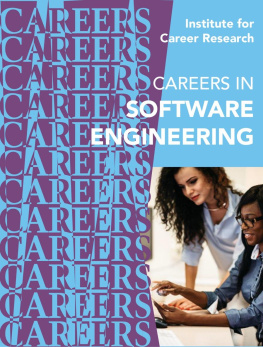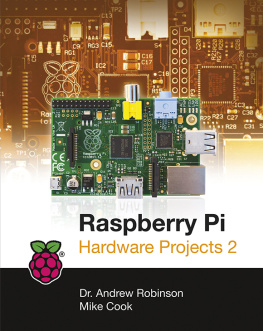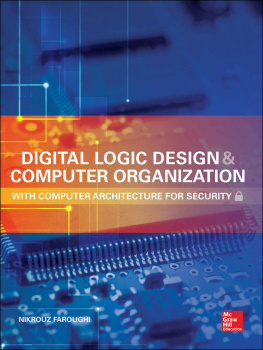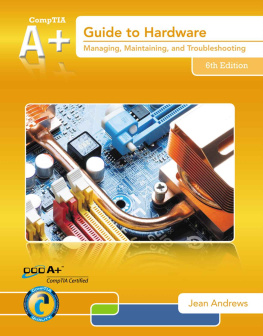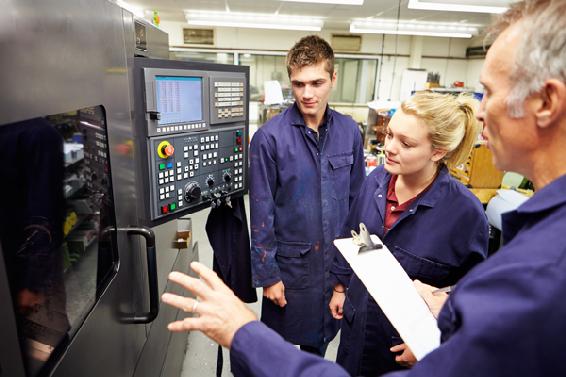
COMPUTER HARDWARE ENGINEER
Overview
Earnings
- Entry Level with a bachelor's degree: around $60,000 to $80,000
- Entry Level with a master's degree: about $65,000
- Median annual income for computer hardware engineers: $100,000
- Top 10 percentile earnings are $150,000+
Traits Required
- A love of computers
- A strong aptitude for math & science
- Analytical & detail-oriented
- Creative, inquisitive, & the ability to visualize things that don't yet exist
- Communication skills
- Organizational ability
- Interpersonal skills
- Integrity, ambition, & drive
- Leadership skills
- Maintain a professional appearance & demeanor
The Work You Will Do
- Design, develop, test, implement, & maintain computer hardware components & systems
- Conduct research
- Supervise the manufacture & installation of newly designed hardware
- Supervise teams of engineers
- Supervise programmers
- Prepare project proposals
- Act as a technology consultant
Where You Will Work
- Computer & data processing companies
- Computer manufacturers
- Engineering & architectural firms
- Banks & other financial institutions
Education Required
- Bachelor's degree
- Master's degree
- High-level research or teaching, a PhD degree is essential
- Licensure & Certification
Pluses
- Challenging
- Exciting opportunities
- Rewards
- Good salaries
- Excellent benefits
- Job security
- Advancement
- Work with cutting edge equipment & technology
Minuses
- Extremely competitive
- Deadlines
- The learning never stops
Introduction
SOME OF THE MOST PROMISING careers today can be found in the field of computer hardware engineering. With computers continuing to spread throughout everyones personal life and across government and business enterprises around the world, the demand grows for hardware engineers to design the technology of the future. Hardware engineering is an occupation that will provide steady growth, job security and high-paying opportunities for years to come.
Computer hardware engineers research, design, develop, and test computer systems and components, including computer chips, Internet servers, network routers, video game consoles, mobile phones, and tablet computers. Computers are found in all types ofdevices,so hardware engineers work on everything from household appliances, to intelligent automotive systems, to wearable technology like Google Glasses and Samsung smart watches.
Engineers typically are employed at research laboratories, with most working for large high-tech manufacturers like Apple and Intel. More than 95 percent of computer hardware engineers are employed in large metropolitan areas.
Hardware engineers apply engineering concepts and techniques to build the technology of tomorrow. They create new devices, chips and interfaces for new hardware applications, and they enhance existing systems and components to make them faster, cheaper and more efficient. Some engineers are experts in certain types of equipment and components, while others focus on applying technology to solve the challenges of a particular business or industry. Hardware engineers are constantly striving to determine how they can best apply technology to help resolve issues and take advantage of new opportunities.
Engineers use computer software, modeling applications, and other tools to design new hardware. They begin by creating blueprints of the computer equipment that will be built or modified. They thentest completedmodels of the new hardware, analyze the results, and make any needed modifications. They also must ensure that the new hardware will work correctly with other equipment, and with the software that will operate the hardware. They may be involved in overseeing the process of manufacturing the computer hardware.
Would you make a good computer hardware engineer? Technical training and at least a four-year college degree are required to land that first job. However, personal traits can be just as important for success. Do you like solving puzzles particularly challenging ones that require a dogged determination to find the answer? Are you good with computers and math? Can you think problems through logically to arrive at the best solution? Do you communicate well, speaking and in writing? Are you a team player? If you have these qualities, you may be well positioned to pursue a career in computer hardware engineering.
If you have good analytical, interpersonal, and technical skills, you can enjoy a financially rewarding career. A combination of training, hard work and positive personal traits will help you achieve the personal and professional satisfaction that accompanies the role of a successful hardware engineer.
What you can do now
IF A CAREER AS A COMPUTER HARDWARE engineer sounds interesting, you can start making preparations now to enter the field. A good first step is taking math, science, and courses related to computers. The more you can learn about how computer systems work particularly in a business setting the better equipped you will be to succeed in this career.
Good PC skills are definitely critical. Engineers use a variety of computer-assisted design (CAD) applications to create chips, smart phones and video game consoles. They rely on databases, spreadsheets, and word processing software just as many other professionals do. Taking a keyboarding class and learning how to use productivity tools like Microsoft Office will prove as helpful in college as in the workplace. Courses may be available at your school, through local colleges, or through online tutorials.
It is never too early to start learning about how computers work. There is a wide variety of computer hardware, but mostsharesome common functionality in terms of integrated circuitry. As you learn more, you will probably decide to focus on one platform, one industry, or a specific area of engineering. For now, gaining an overview of the various options will help you choose the environment that interests you the most.
To learn more about computer hardware engineering, read industry publications (many of which are available online). Visit the web sites of professional associations such as IEEE. If there is a local chapter in your city or on a nearby college campus, you may be able to visit a meeting and possibly obtain a student membership. Networking with local professionals who are employed as hardware engineers also helps you learn about scholarships, internships, and local job openings.
History of the Profession
ALTHOUGH COMPUTER HARDWAREengineering did not evolve as a distinct profession until the late 20thcentury,the roots of the field date back hundreds of years. In fact, before the 1930s, the term computer referred not to machinery, but to a person who did mathematical calculations!
The earliest machine for calculations was the abacus, a device with rows of countingbeads, thatdates back to the 14th century. The slide rule, introduced in the 17th century, had moveable parts to calculate logarithms. In the 1800s, Blaise Pascal created a mechanical calculator, and Joseph Jacquard used punched cards to run a loom. Charles Babbage and Ada Byron teamed up in 1837 to create the differential engine, a hand-cranked machine that contained many features found in modern computers. In 1890, Herman Hollerith came up with a punch card system for the massive data crunching needed for the U.S. Census. (Hollerith also founded the company now known as IBM.)
Next page





